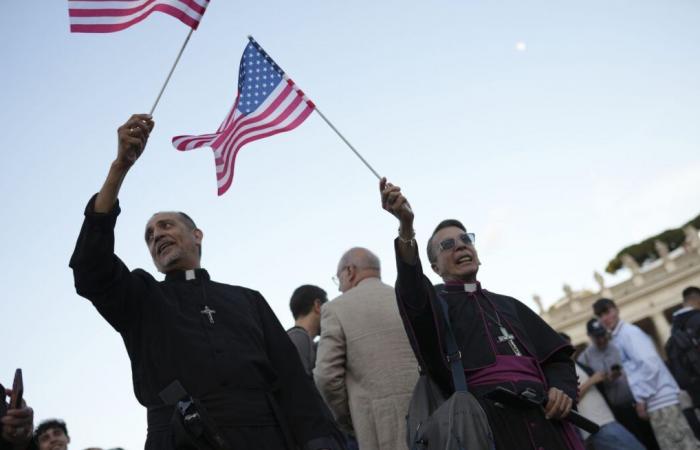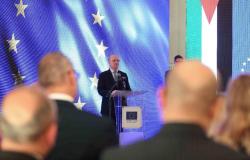The Catholic church surprised Thursday by leading an American pope. Given the geopolitical weight of the United States in the world, the election of a sovereign American pontiff has long been perceived as a taboo. How to interpret this choice made by the cardinals? The duty met with two experts.
An American is for the first time elected Pope, at a time when the United States upsets the global geopolitical order. What analysis do you do?
The election of Robert Francis Prevost is a choice that reflects “a certain pragmatism in terms of identity dynamics on a global scale”, replies Patrice Brodeur, associate professor at the Institute of Religious Studies at the University of Montreal.
But it is above all a pope who is in line with François, he says. “We certainly wanted to get someone who represents continuity […] To keep stability due to more recent instability in global dynamics. »»
By choosing an American, the cardinals have made sure to have at the head of the Catholic Church “someone who understands the United States today, who will be an interlocutor with the highest level of understanding of the United States and the degree of polarization that exists there”.
This decision brings in it “something significant”, adds Marie-Andrée Roy, professor in the Department of Sciences of Religions of UQAM. “He is an American who should be able to speak to [dirigeants] Americans, and it’s certainly not going to go to Trump’s line, “she predicts.
Pope Francis had focused his political message around the reception of migrants. Pope Leo XIV, described as François’ dolphin, could he take this speech and carry him to Donald Trump?
“It would be quite possible,” said Patrice Brodeur. Migrant policies relate to “compassion” towards the “poorest of a globalized society,” he said. It would therefore not be surprising to hear Léon XIV launching an appeal to leaders “who influence the realities of the world of today”.
Although he is from Chicago, Robert Francis Prevost has long worked in Peru. At his first speech from the Balcony of the Saint-Pierre Basilica, he also directly addressed the Peruvian faithful to his “dear diocese of Chiclayo”.
“He is clearly attached to the Latin American Church, points out Marie-Andrée Roy. And it is a lot of Latin American who are expelled from the United States. I think he will be completely united [de ces personnes face à leur réalité]. »
These opposite positions could create flameches. An account on social network X awarded to Robert Prevost openly criticized the American vice-president in February, JD Vance, for his reading of church teachings.
“JD vance is wrong: Jesus does not ask us to prioritize our love for others”, we can read in the commentary always online, which refers to an article in which the vice-president explains that a “Christian concept” states that our love must first go to our family, then to our neighbors, to our community, to our fellow citizens, and ultimately, to the rest of the world.
“A large part of the extreme left completely reversed this concept,” says Vance, who converted to Catholicism in 2019.
More recently, in April, the account awarded to Robert PREVOST relayed a comment criticizing the expulsions led by the Trump government.
Does the pope still have a geopolitical influence in the world?
Yes, believe the two experts by evoking the role of mediator played by the Pope on the world scene. “He is not the only one, but he is certainly one of the great world leaders for peace in the world,” said Marie-Andrée Roy.
“He has an important role because he is one of the rare transnational voices,” notes Patrice Broder, recalling that the Sovereign Pontiff represents 1.4 billion Catholics in addition to maintaining an interreligious dialogue with other spiritual leaders.
During his reign, François notably worked for a rapprochement between the Israeli and Palestinian leaders, recall the two teachers. “Even if the Pope does not always have success in terms of geopolitics, the fact remains that leaders have agreed to go [au Vatican pour le rencontrer] “, Underlines Marie-Andrée Roy.
The heads of state “recognize” at the Catholic Church this “ability to challenge political level”, she sums up.








